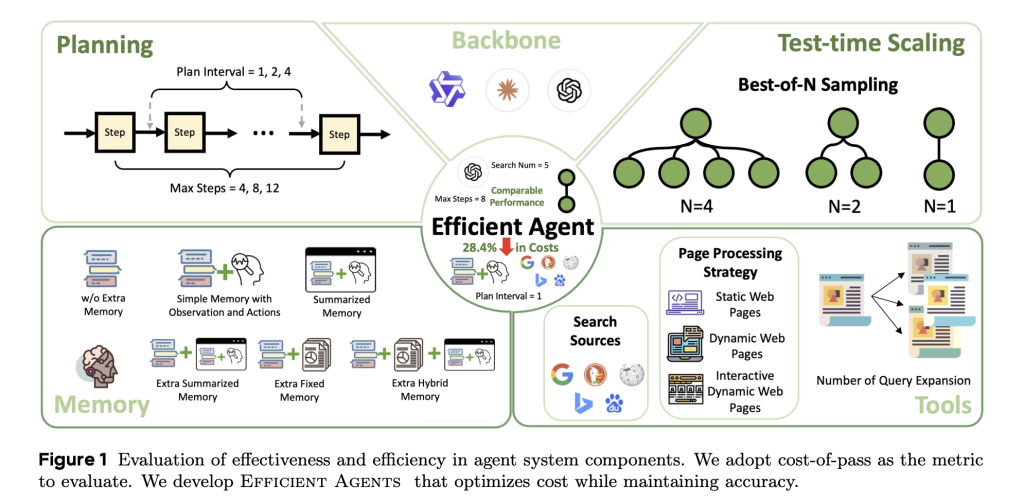«`html
Efficient AI Agents Don’t Have to Be Expensive: Here’s Proof
Are AI agents getting too expensive to use at scale? This is a pressing issue in the world of artificial intelligence. A recent study from the OPPO AI Agent Team provides valuable insights into this concern.
The Real Problem: AI Agents Are Getting Pricey
Many of today’s advanced AI agents utilize large language models (LLMs) such as GPT-4 and Claude for complex, multi-step tasks. However, the operational costs to run these systems have escalated, making broad deployment challenging for both businesses and researchers. The OPPO team’s latest study identifies the primary cost drivers and explores potential solutions.
The Game-Changer: Measuring AI Agent Efficiency
This research introduces a critical metric: cost-of-pass. This metric quantifies the total cost to generate a correct answer to a query, incorporating token costs and the accuracy of the model’s first attempt.
High-performing models like Claude 3.7 Sonnet exhibit superior accuracy but come with a cost-of-pass three to four times higher than that of GPT-4.1. Conversely, smaller models like Qwen3-30B-A3B provide adequate performance at significantly lower costs.
The Big Experiments: What Makes Agents Expensive?
- Backbone Model Choice / Claude 3.7 Sonnet achieves 61.82% accuracy at $3.54 per successful task / GPT-4.1 costs $0.98 with 53.33% accuracy / Qwen3 offers basic results at just $0.13.
- Planning and Scaling / Increased planning does not necessarily equate to better results; excessive steps can raise costs without significantly improving success rates.
- How Agents Use Tools / Although using multiple sources for information can be beneficial, overly complex actions can increase costs without proportional benefit.
- Agent Memory / Maintaining a simple memory structure yields the best results regarding cost-effectiveness and performance.
Putting It All Together: The “Efficient Agents” Blueprint
The Efficient Agents framework includes the following strategies:
- Utilize a balanced model like GPT-4.1.
- Limit steps to avoid unnecessary complexity.
- Conduct broad searches without excessive browser interactions.
- Keep memory configurations basic and efficient.
This approach allows Efficient Agents to deliver 96.7% of the performance of leading open-source alternatives at less than three-quarters of the cost, resulting in a 28.4% reduction in expenses without sacrificing results.
Why This Matters
This research highlights that effective AI deployment hinges not solely on technological capability, but on practical cost management. Businesses should measure their cost-of-pass to optimize their AI strategies. The Efficient Agents framework is open-source, encouraging experimentation in various contexts, from startups to large enterprises.
In conclusion, next-generation AI agents can be both intelligent and economically viable by rethinking their design principles. The insights provided in this study offer a roadmap for enhancing AI accessibility and efficiency.
Further Reading
Check out the Paper and GitHub Page for more information. Follow us on Twitter and join our 100k+ ML SubReddit, and subscribe to our Newsletter for updates.

«`